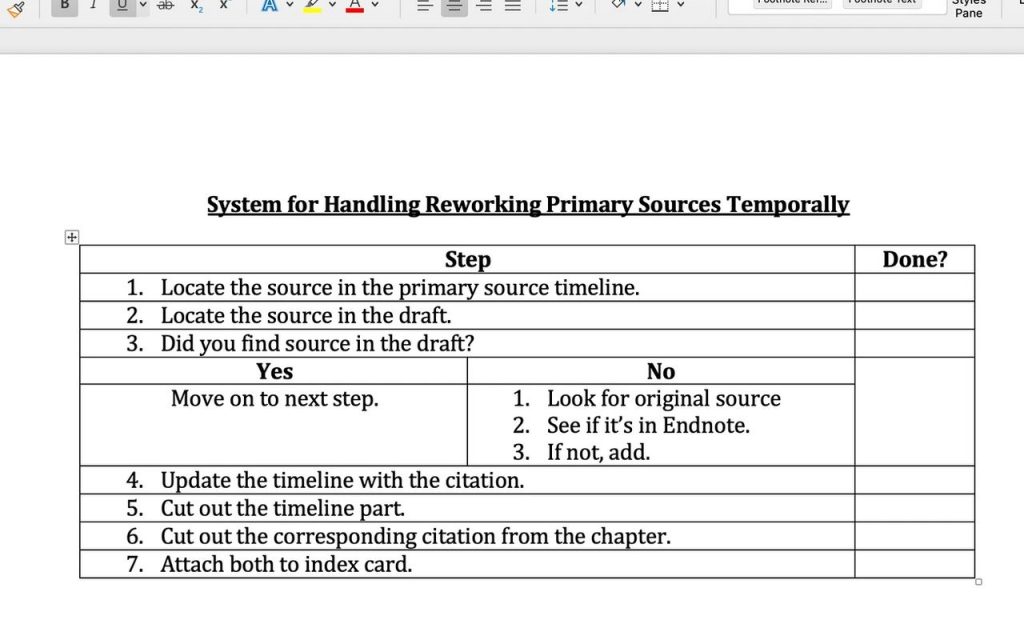Systems and writing may seem contradictory.
Don’t we write when the muse hits? Otherwise, we’re suffering from writer’s block, right?
You just open the document and write the thing.
When you edit, you just do the copy edits with the red pen.
There’s no system.
My answer to that is NO! Writing is easier and much more enjoyable when we devise systems to make the magic happen. And I suspect that you have routines/systems when you sit down to do your work.
- You may have the routine of reviewing a chunk of text before you write new text or edit.
- You may grab a cup of coffee or water before you start.
- You may have particular music you like to listen to or apps that keep you focused.

These are systems. These are structures.
They signal to your body that it’s time to write.
But aside from the routines, we can create systems about how we approach different parts of our writing. This is imperative, particularly if we are under the time gun.
I have a client who wants to finish her dissertation by the end of March. This is an aggressive deadline for writing a project she’s never done before.
The only way it will be doable is if she creates systems out of what she’s writing.
Writing a literature review? No problem. Write the first piece/chunk of literature and notice what you did as your wrote it. What were the particular steps? What steps were useful, what were superfluous?
And then you use that routine over and over again.
You see, you have a system for writing a literature review.
I am currently writing my monograph. There’s nothing like rereading your dissertation chapter to remind you that the dissertation was just a draft. And I’ve had to create a system for making sure I’m writing an historical and analytical narrative. Soooo, when I tackle a new chapter, I use the following system:

It’s hard and it takes a long time, but I know what I’m doing and I can ignore the noise in my head as I move the chapter forward.
Wendy Laura Belcher’s book Writing Your Journal Article in Twelve Weeks is another system for writing big academic projects. This way you don’t get lost in the enormity of it all. And that book forms the basis of my program Writing for Personal and Professional Success. This is designed to help you form a system and structure for writing.
Because systems and structures make the writing process so. much. better.
What do you think?
If you want to hear more, sign up for my newsletter!
